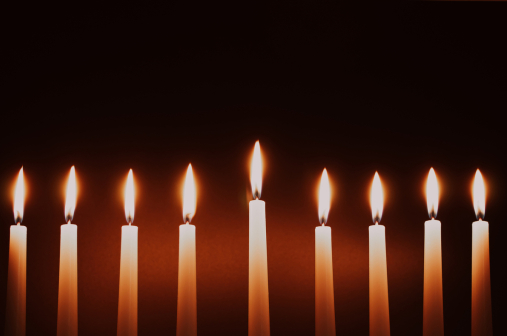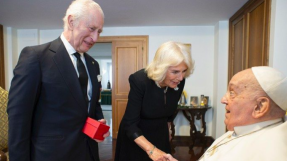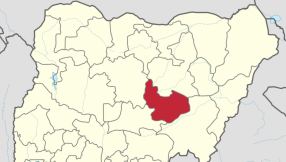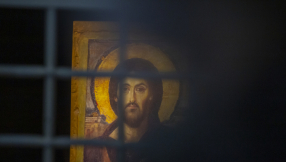
Jewish academic and Hebrew scholar Irene Lancaster reflects on the meaning of the story of Joseph.
At the end of the year, encapsulated in the name of our latest parsha, Miketz, (Genesis 41-44:17), Joseph the dreamer finds himself in a hole.
What do you do in a hole? Resign yourself to your fate; or, as in Joseph's case, use your talents in order to extricate yourself and forge a new future?
Pharaoh has a famous dream of seven fat cows followed by seven thin cows which swallow the fat cows. This dream is succeeded by seven ears of corn in similar mode.
Joseph, known as the interpreter of dreams, is called upon to interpret the dream and advises Pharaoh to appoint an economist to help Egypt save up during times of plenty for the time of famine which will arrive in seven years.
Joseph is chosen and appointed to the role of economist. He also marries Pharoah's daughter, so is now related to Pharaoh himself, the same Pharaoh who had him imprisoned on trumped-up charges.
Why is Miketz ('At the end ...'), the Joseph story, read towards the end of the gentile year and around the time of Chanukah, the eight-day festival which we are currently celebrating?
Both the Joseph story and the Chanukah story deal with Jews who make good in diaspora, only to find that, at the end of the day, diaspora repudiates Jews.
Chanukah commemorates the heroism of the Maccabees from Modiin in Israel. Almost single-handedly, they stood out against the Syrian Greek rulers who had succeeded in Hellenizing a large part of Israel. In 168-167 BCE, the Syrian Greek king, Antiochus Epiphanes, defiled the Temple in Jerusalem and at best most Jews stood by and let it happen.
The Maccabees defeated the Syrian Greeks and in the Temple a miracle took place. They found a cruse of oil, just enough for one day. But the oil lasted for eight days and this is what we commemorate at our annual Chanukah festival. We light candles every day for eight days, starting with one, and increasing the number each day.
If not for the heroic stance of the Maccabees, the miracle of the oil would not have happened.
Today the Jews in diaspora find themselves in the same predicament as both Joseph in Egypt and the Hellenized Jews of 168 BCE.
Unlike at Purim which takes place in Persia a few centuries earlier, the Hellenized Greeks did not want to physically exterminate the Jews; they simply wanted to de-Judaize them and force them to adopt their own customs.
Joseph has his name changed by Pharaoh and becomes outwardly an Egyptian. But in the long run this total assimilation is not good for the Jews, as we discover when a new Pharaoh arises who 'knows not Joseph' (Exodus 1:8).
This year, in a rare incidence, Chanukah started at Christmas and ends in the New Year. But the two festivals couldn't be more different.
Chanukah celebrates the nation that was extricated from near-certain death and oblivion through assimilation. And it was human beings who made this happen, human beings who went against the grain and were unpopular among their own people. As a result, belief in one G-d was saved by the Jews for the world.
A rabbinic explanation states how the cruse of oil in the Temple was actually split in two, the numerical value of the letters of the Hebrew 'pach' being 88. This is why we light 44 candles in total today.
However, we also sing about the word 'pach' in our song 'Maoz Tsur' which accompanies the nightly candle-lighting. This song, the title of which was incorporated into Israel's Declaration of Independence of May 1948, includes a reference to those who wish to destroy the Jewish people. These destroyers end up being hoist on their own petard and the means of execution becomes a 'pach', here not a cruse, but a 'snare'.
To return to Joseph's 'hole'. Is this hole a snare, a trap which will imprison him for life? Or, will it break open to reveal the oil of life, illuminating him in his appointed role as saviour of the Egyptian people at their time of need?
This is the story of the Jewish people, some of whom are still imprisoned in Gaza today by the forces of evil. Jews have always been called upon to help the world, but too often they have been made to pay for the envy and greed of others by punishment of their good deeds.
May the coming year, paralleling the onset of longer days, shine a new light on the world as our final eight candles are lit on the new month of Tevet in the Jewish calendar. This year the Jewish new moon of Tevet, always taking place on the 8th and final night of Chanukah, coincides with January 1 2025.
Chanukah is dedication. May we rededicate ourselves to both the tasks at hand and the new tasks awaiting us in the future.













